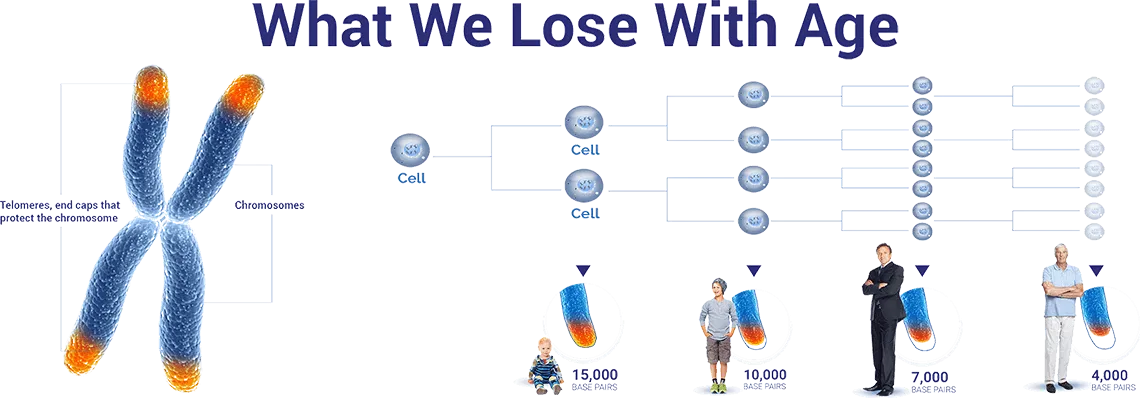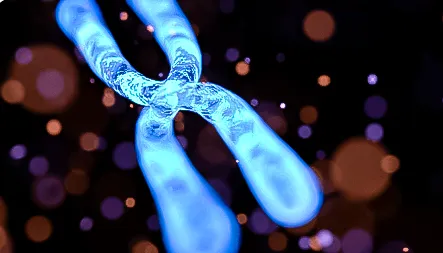| Item | Price | Qty | Total | |
|---|---|---|---|---|
 Loading Cart...
Loading Cart...Telomeres & Cellular Aging
Telomeres shorten as we get older causing aging in our cells 1,4,6

We inherit telomeres from our parents, but no matter the length of our telomeres at birth, everyone’s get shorter as they age. 4,6
Shorter telomeres have a negative effect on our health.4,8
Telomere shortening is the main cause of age-related break down of our cells.2
When telomeres get too short, our cells can no longer reproduce, which causes our tissues to degenerate and eventually die.1,4
Some cells, like those found in the skin, hair and immune system, are most affected by telomere shortening because they reproduce more often.4,6

Short telomeres have been connected to premature cellular aging3,8
Mounting evidence shows a strong connection between short telomeres and aging in our cells3,4,5
There is scientific evidence that telomeres can be lengthened

An enzyme called telomerase can slow, stop or perhaps even reverse the telomere shortening that happens as we age.2,5 The amount of telomerase in our bodies declines as we age.4
Telomerase maintains and may even lengthen telomeres.2,5,6 Exposing human cells to telomerase slows cell aging and allows cells to begin copying again2 and longer telomeres cause gene expression to change to a younger phenotype which makes cells function as though they were younger.
There are other things we can do that might help restore telomere length or at least slow the loss of telomere length: reduce stress, stop smoking, lose weight, exercise more and eat a healthier diet.3,7,11

